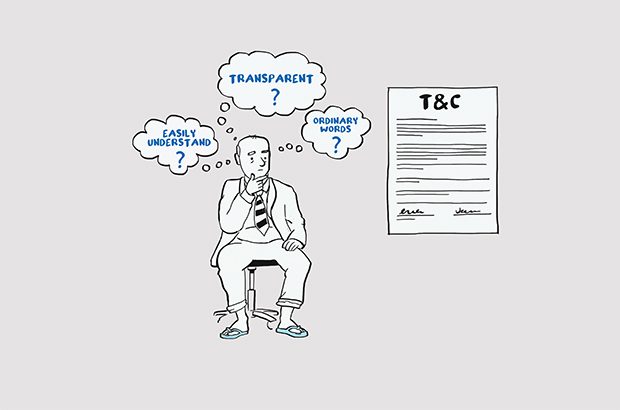
67% of UK businesses sell products or services to consumers. Yet, according to CMA research more than half (54%) of businesses surveyed don’t fully understand the rules on unfair terms. Could this be you?
Chances are you’ll be spending a lot of time thinking about your customers. How do you attract new ones? How can you keep existing ones happy?
Then again, you’re also running a business. You need rules to set out how you work. And for many businesses, these are where their terms and conditions come in.
When things go wrong
When asked why they had terms and conditions, the second most popular reason given by UK businesses, who were questioned, was to protect themselves – right after ‘clarifying the relationship with the customer’.
In other words, terms and conditions are something you can hold customers to when things get difficult.
For example, a customer may cancel at the last minute and want their deposit back.
They may break the contract you have both agreed, leaving you out of pocket.
If the product they bought breaks, they may claim it’s your fault.
Or they may not realise that their contract is automatically renewed, and get angry when they find out another year’s payment has been taken.
So you make sure all your customers sign your terms, or at least tick a box to say they accept them. That way, when things get difficult, you can hold them to what they signed.
Or can you?
Do your terms and conditions protect you?
Imagine a particularly upset customer decides to take matters further.
They don’t accept that just because they’ve signed something, they should be held to it. They go to Citizens Advice for help. They may even involve a lawyer.
You’d find that, in order to be enforceable, your contract terms have to be fair. This is a legal requirement which is worked out by applying a test of fairness to contract terms used by businesses in their dealings with consumers.
Our research shows that over half of UK businesses surveyed are uncertain around the law on unfair consumer contract terms. In other words, they may struggle to judge whether their terms are fair.
Whether an individual term is fair or not will depend on relevant circumstance, but a good starting place to understand how the fairness test works is to look at some common types of terms that can cause concern but are regularly used.
To help illustrate these, we’ve produced short video guides. There’s also an introductory video for businesses explaining fairness in consumer contract terms as well as top tips on how to write contract terms.
These guides provide a simplified overview for businesses and complement the more detailed guidance on unfair terms law produced by the Competition and Markets Authority (CMA) in 2015. The full collection can be found on our pages www.gov.uk/cma/fair-contract-terms.
Having fair contract terms can save you time and money, help protect your business and be good for your reputation.
So, take the time to get clued up on the law. After all, if customers trust that you’ll treat them fairly, they’ll keep coming back for more!